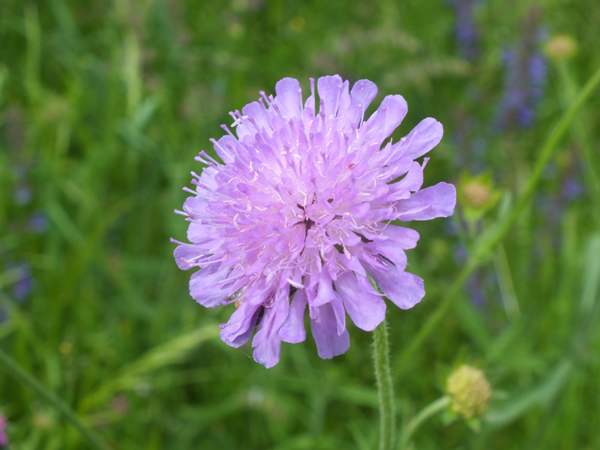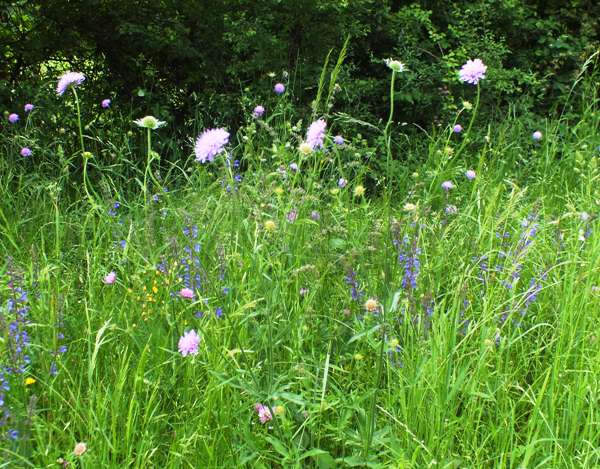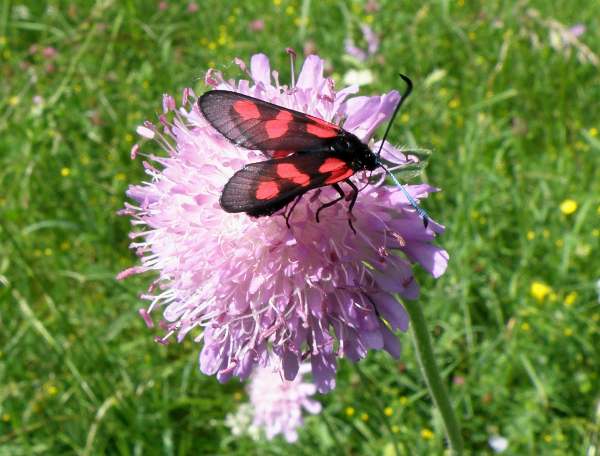Knautia arvensis - Field Scabious
Phylum: Magnoliophyta - Class: Equisetopsida - Order: Dipsacales - Family: Caprifoliaceae

This tallish, hairy perennial is actually a member of the Honeysuckle family, as are the many other true Scabious species. This pretty wildflower varies in colour from pale pink to pale mauve.

Distribution
Knautia arvensis is widespread and fairly common throughout Britain and Ireland except for the far north. Field Scabious is also found, along with other very similar species, in many parts of Europe; we have seen it in Slovenia in the Triglav National Park as well as in France and Italy.

Habitat
You are more likely to see Field Scabious growing on dryish soil, so open places are preferred to woodland edges.
Etymology
The common name Scabious comes from scabiosa herba, the scabies herb, because it was thought to be an effective treatment of that disease. Other common names given to this wildflower include the Pincushion Flower and Lady's Pincushion.
Sue Parker's latest ebook is a revised and enlarged second edition of the acclaimed Wildflowers in the Algarve - an introductory guide. Full details here...
Buy it for just £3.95 on Amazon...
Please Help Us: If you have found this information interesting and useful, please consider helping to keep First Nature online by making a small donation towards the web hosting and internet costs.
Any donations over and above the essential running costs will help support the conservation work of Plantlife, the Rivers Trust and charitable botanic gardens - as do author royalties and publisher proceeds from books by Pat and Sue.



